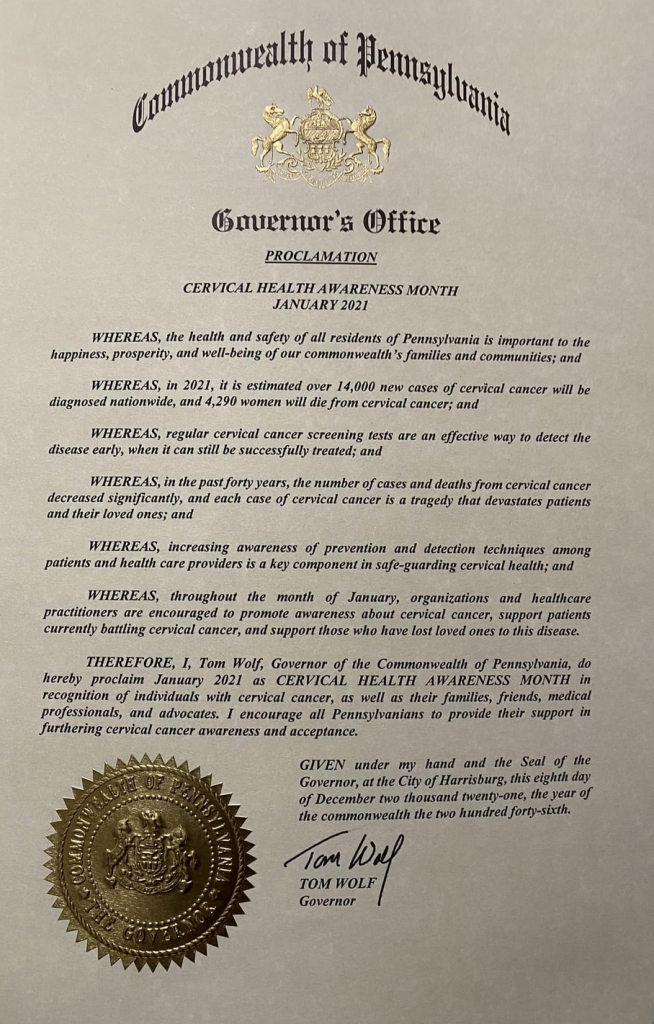Make Your Voice Heard
Are you interested in raising awareness about cervical cancer and HPV disease? Great! There are so many ways you can get involved. Read on for suggestions on ways you can use your voice to promote cervical cancer prevention.

Where to Start
Visiting NCCC is a great place to start. Here you’ll find information and resources that will help you educate yourself and others about cervical health prevention, including our Toolkit for Advocates on this page.
One of the first things we’d suggest is to see if you have an NCCC chapter in your area. There are more than 30 local chapters across the country. Chapters participate in a range of activities—community health fairs, national conferences, educational events at local colleges and community health centers, awareness walk/run events, and a host of other events where they promote the importance of cervical cancer screening and early detection, HPV vaccines, and more.
If you don’t have a chapter in your area, you can learn more about the type of work they do and get ideas and information here. Explore community outreach opportunities, get ideas on ways to raise awareness, learn how to talk to the media, and get resources to share online.
Find Your Audience
NCCC can provide you with information and resource but you will need to determine—who is your audience? Educating your close circle of family and friends is a great place to start, but where can you go from there? Is there a local health fair you can participate in? Do you belong to any clubs or organizations? Maybe you have an active social media presence and have a large reach there. Louisiana Chapter Leader Denise Linton suggests, “begin discussions with family, friends, church, and work family ask if they know about any opportunities to be a part of or create one yourself if you have collaborators.”
Book Clubs
Belong to a book club? This can be a great place to share information or suggest a relevant book like Enough: Because We Can Stop Cervical Cancer.
Church Groups
Involved in a group at church? This can be another place to share information about cancer prevention, including vaccine information for parents.
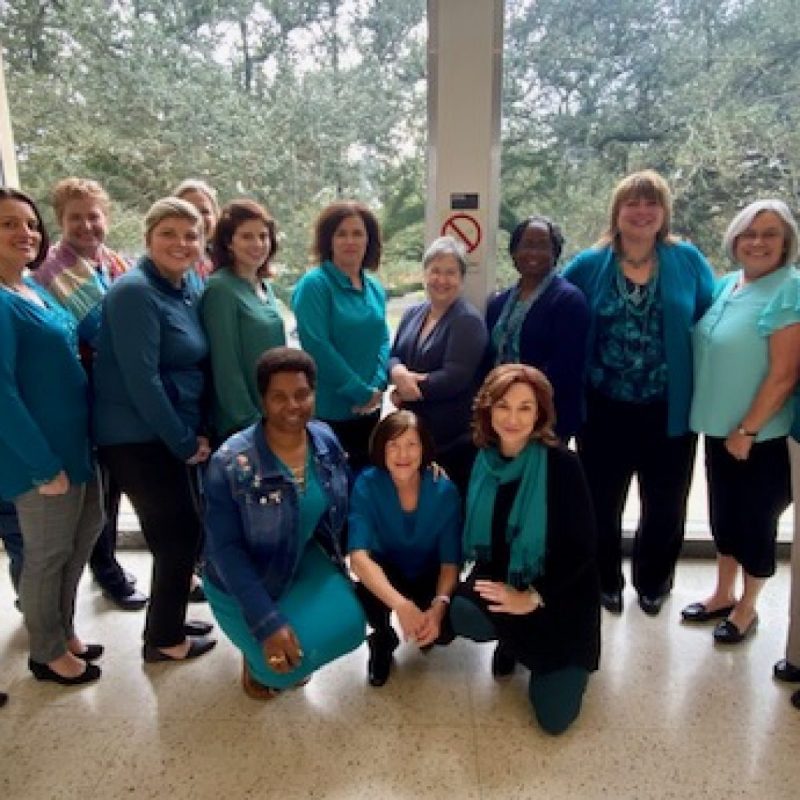
Lunch and Learn or "Teal Tuesday"
Does your workplace have opportunities to share information? Or can you coordinate a "Teal Tuesday" where staff wear teal and white to raise awareness about cervical cancer?
Farmer's Market or Craft Fair
Does your area have any community markets that allow space for advocates to share information?
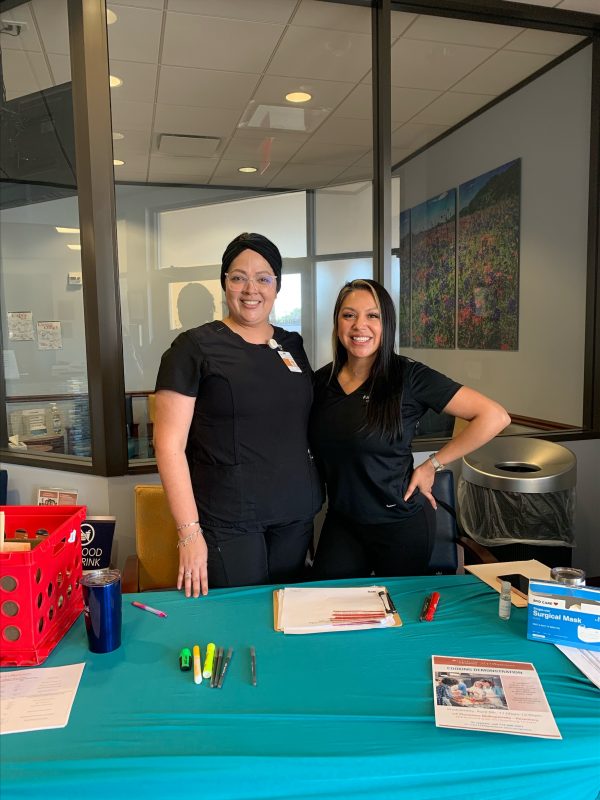
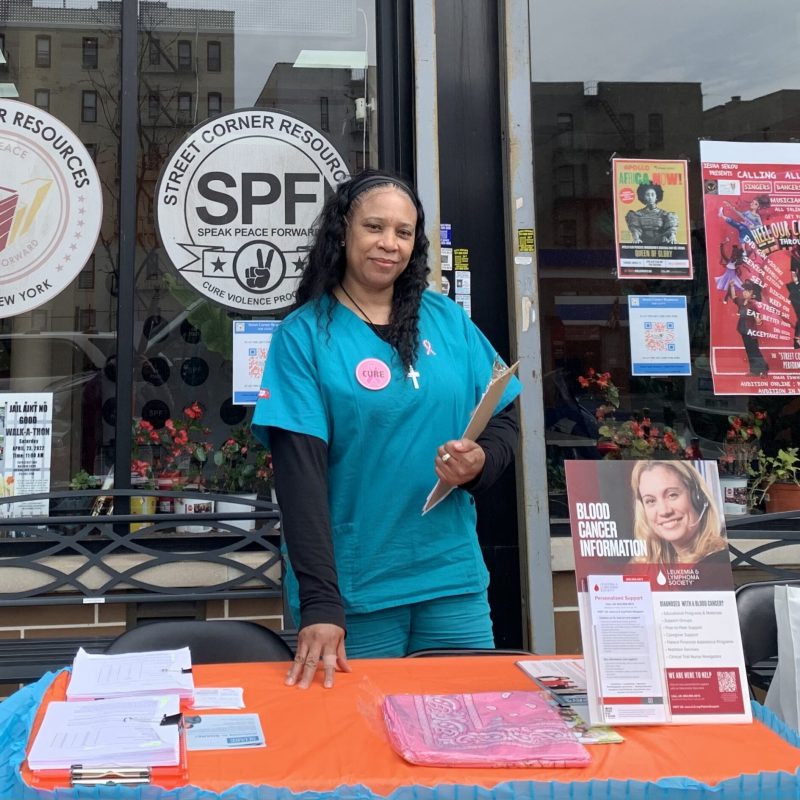
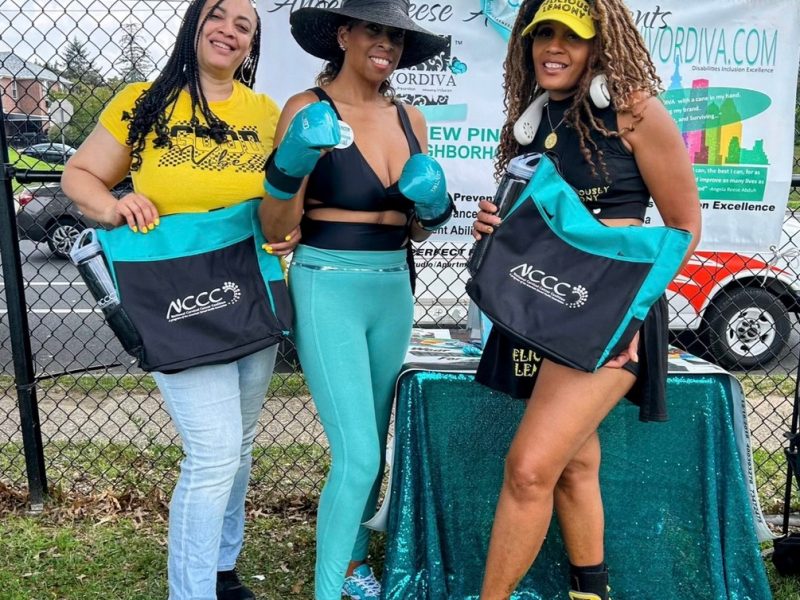
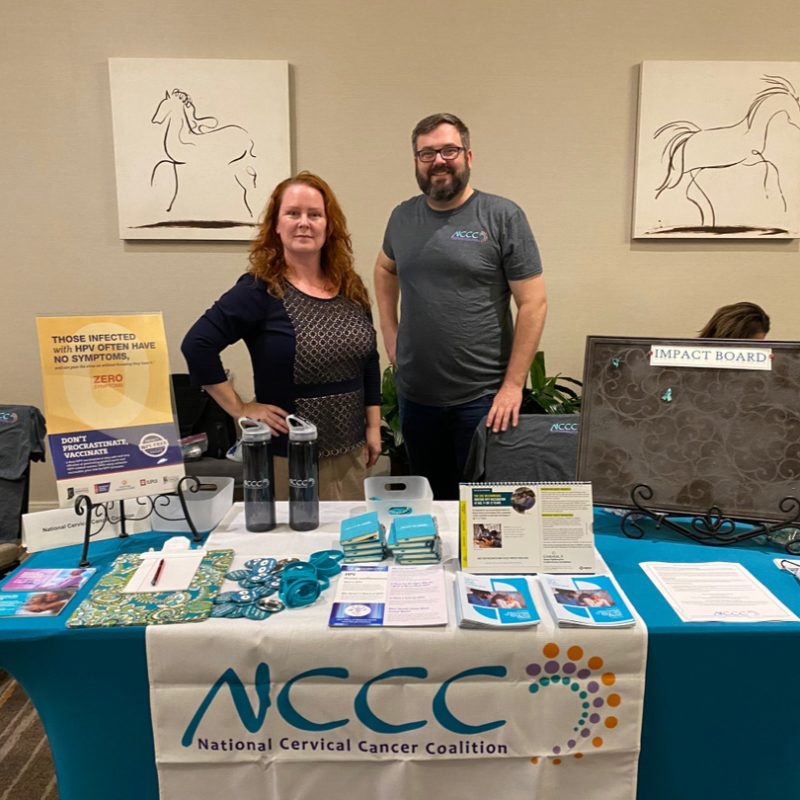
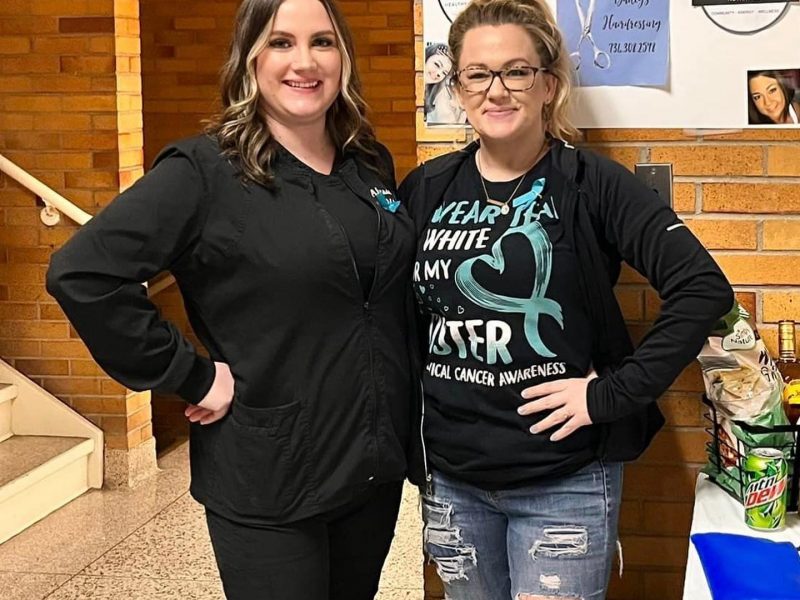
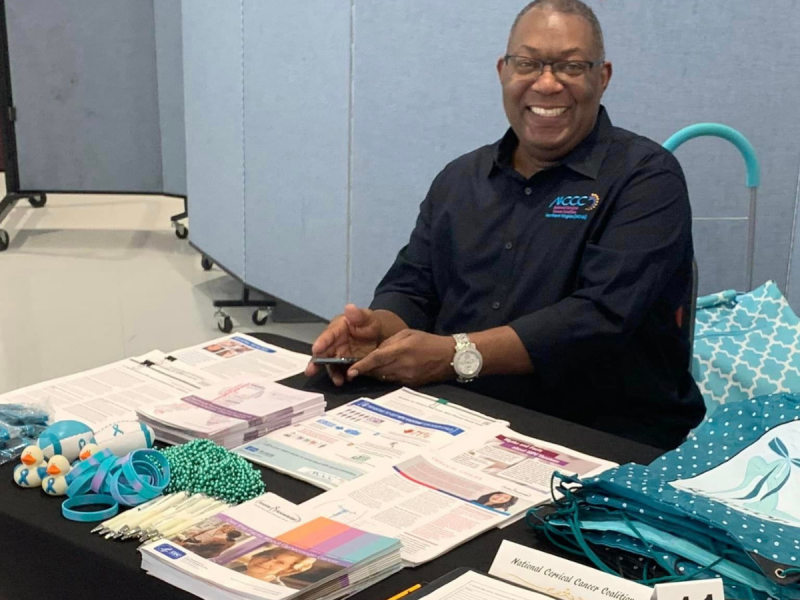
Community Outreach Opportunities
A great place to find an audience and share materials from our toolkit for advocates is a community health fair or health-related conference. These events are also a great place to find allies. Oklahoma Chapter Leader Tracy Freudenthaler suggests reaching out to other exhibitors at the event to see if there is room for collaboration: “I’m there to say, can I talk? Can I bring a pamphlet? Can I bring some education? What are you doing that I can support your work somehow?”
Washington Chapter Leader Selena Rushton agrees on the importance of “finding the right allies who can help you with your goals.” As she notes, “it’s kind of an opening line—I’ll say to people, can we sit down and talk about ways we can mutually benefit one another?”
You don’t need to be an expert to be an effective advocate. As Freudenthaler says, “a lot of these things are simply, I’m a good human with a message and I have these evidence-based materials that can answer the questions that I can’t. And let’s dialogue and make sure you’re talking to your health care provider.” And don’t worry if the event is small, she notes. “The audience size isn’t the value. It’s getting the messages across about prevention.”
Virginia Chapter Leader Alegra Woodard echoes this sentiment: “Every little bit helps and we share our story with one or many because we understand how important the work is. It is a labor of love!”
Shine a Light on Cervical Cancer
Several NCCC chapters have succeeded in lighting up local landmarks in teal to commemorate Cervical Health Awareness Month in January. These include the Washington Chapter, that lit up the Great Wheel in Seattle, the Illinois Chapter, that lit up the Murray Baker Bridge in Peoria, and the North Carolina Chapter that lit up the Duke Energy Center in Charlotte.
Is there a building or other landmark in your area that you’ve seen illuminated for special events or in commemoration of a cause? That might be a target for teal in January. Investigate the right contact (e.g. building manager or city official) to inquire about lighting opportunities. Chapter leader Jane Fitch in Charlotte connected with the right person, lighting the building was as easy as sending an email.
If you succeed in securing a landmark, make sure to publicize the event in local media and your own networks and share information from NCCC on the importance of Cervical Health Awareness Month.
Making it Official
In January, many NCCC chapters across the country request official proclamations from their local of state government, declaring January as Cervical Health Awareness Month. These official proclamations are a great way to garner attention and recognition to a wider audience.
Requesting a proclamation is usually a straightforward process, with request forms available online, but requests need to be made well in advance.
Before consider a request, check to see if there is an NCCC chapter in your state. If there is, connect with the chapter leader to learn more about the process.
Supporting Patients and Survivors
Several chapters have offered direct support to cervical cancer patients by gifting care packages to local partners. Louisiana Chapter Leader Denise Linton offers a place to start: “Begin with who you have easy access to—church, family, friends who may know about a nonprofit/organization that provides services to the type of clients/patients. It does not have to be grand, but a need which could be two or three persons.”
You may have an existing connection, like Virginia Chapter Leaders Alegra and Bobby Woodard. They built a relationship with a local cancer care center over the course of several years. For New York Chapter Leader Diana Caufield, the connection was personal. Her chapter, the Rockland Roses, donated gift bags to the hospital where Diana’s sister, Rose, underwent surgeries and treatment for cervical cancer. As she notes, “We like to support the Dr.’s and hospitals that Rose was connected to. It makes it more personal and meaningful!”
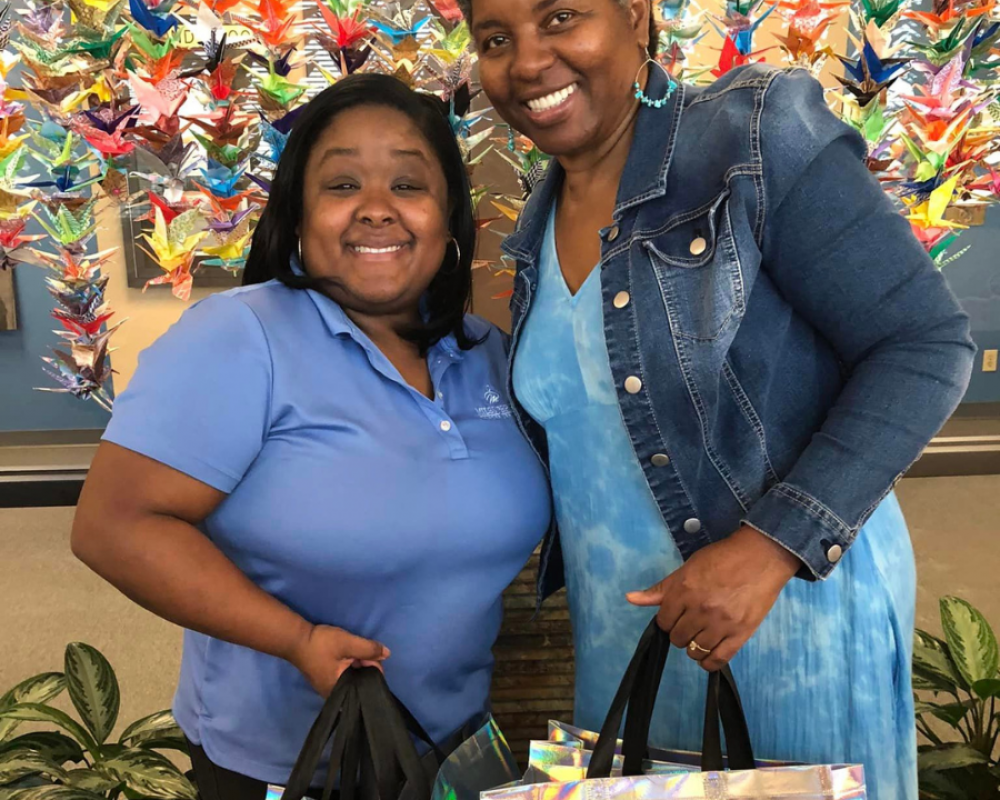
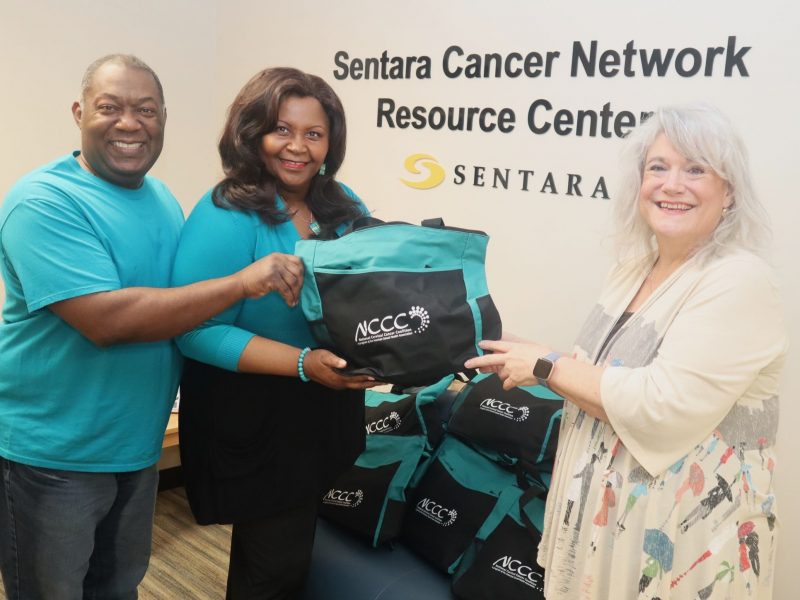
Social Media Outreach
Are you active on social media? You can make an impact among your followers there with content developed by NCCC. In the Toolkit for Advocates, you’ll find science-based content—posts, images, and messages—on HPV and cervical cancer prevention customized for several social media platforms. With resources at your fingertips, we make it easy for you to use your voice online.

Toolkit for Advocates
Ready to get started? The Toolkit for Advocates has all of the resources you need—printable education materials including flyers and postcards, social media content, a sample proclamation, sample press releases, and more.




